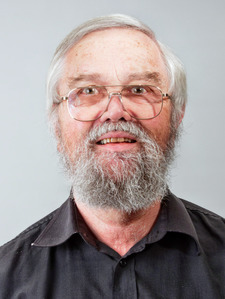
| The Internet: our future, but not our present |
| Greg's rants |
| Greg's home page |
| Greg's diary |
| Greg's photos |
| Greg's links |

|
|
|
It's been about 20 years since I started using the Internet directly (as opposed to my prior email access via Tandem's SMTP gateway). It quickly became a way of life. Then the web came, and we were allowed to do commercial things on the Internet (“Death of the Internet, film at 11” as the old die-hards said). Nowadays even the Australian Government considers “broadband” access a right of all Australians.
But for most people the Internet is still in the future, somehow. It's used by teenagers and “alternative” people, and real people don't use it. Certainly our politicians don't, or they'd come out with considerably better thought-out bills. Those who do use the Internet mainly see it as obfuscated by Microsoft.
Currently (January 2009) the Australian Government is showing its complete lack of understanding by bringing out a bill to censor the Internet. The industry has reacted strongly, of course, and it seems that Mark Newton has been particularly active, to the point where the entire industry is up in arms. Stephen Conroy, the current IT minister, has personally singled out Mark as an evil-doer. There's a good summary of the incident, so I won't go into detail here.
Mark's letter is a little more aggressive than necessary:
SENATOR CONROY HAS INVALIDATED THE GOVERNMENT'S CLAIM FOR A MANDATE BY LYING TO THE AUSTRALIAN PUBLIC ABOUT THE SCOPE OF THE POLICY
In December 2007, Senator Conroy was widely reported in the press as stating that “... anyone wanting uncensored access to the internet will have to opt out of the service.” ... In October 2008, Darren Pauli from IDG/Computerworld obtained confirmation from the Minister's media spokesman that no opt-out will be available, “... the filters will be mandatory for all Australians.” As far as politicians' lies go, this one is breathtaking in its audacity.
I can't agree with Mark here; things change with time. This letter was written to his Federal representative, so he's implicitly insulting her too, which is counterproductive.
Mark mentions the Broadcasting Services Amendment Act, passed 10 years ago, which failed dismally, but he doesn't highlight it. The big thing that he has drawn attention to is the use of a VPN. He's right, of course, but I can only marginally agree with him there, too: you don't need a VPN to bypass censorship: an ssh tunnel is easier to implement and just as effective. It's encrypted, and it changes the port numbers, making it impossible for any sniffer to determine the content. I describe how to set them up in The Complete FreeBSD on page 424.
I send all my mail via an ssh tunnel to an external server—not to break the law, but out of convenience, and (marginally) to protect myself from lawbreakers. I perform my web site updates with rsync and ssh, which has similar properties. Given the anarchy on the net, you'd have to be crazy to transfer any kind of sensitive data (at least passwords) in the clear. So it's only natural that pædophiles and terrorists should use encryption. I should be surprised that there are any left who don't, but I've also ranted enough about the common perception of Internet security, even with people who should know better, like financial institutions.
But people have gone into much more detail than I, with much better researched information. From my perspective, though, it shows that Western society as a whole doesn't understand computers. I rant on this topic continually—the Kenwood web site is the most recent example. People still don't take the Internet seriously. I don't know of any company that has both a web site and printed catalogues or brochures where the web site is of as high a quality as their printed documentation. From the point of view of politicians, they continually look on the Internet as a separate space, requiring separate laws, and they continually overestimate their own ability to enforce the laws that, in their ignorance, they pass. In a time so influenced by the Internet, you'd really be able to expect that the Government understands it. I wonder what computer skills Senator Conroy has. At the very best, I'd expect him to be able to operate “Internet Explorer” and Microsoft “Outlook”.
The big problem with censorship is that the Government is trying to block traffic that people want to perform. They'll find ways around it. They can't even stop spam, traffic that the receiver doesn't want to have; that would be considerably easier to achieve, not with technological tools, but with existing laws. But even that's too much trouble. Why should censorship work? A half-anonymous cartoon (I have only been given the URL by a friend of a friend) puts it well:

| Greg's home page | Greg's diary | Greg's photos | Copyright |